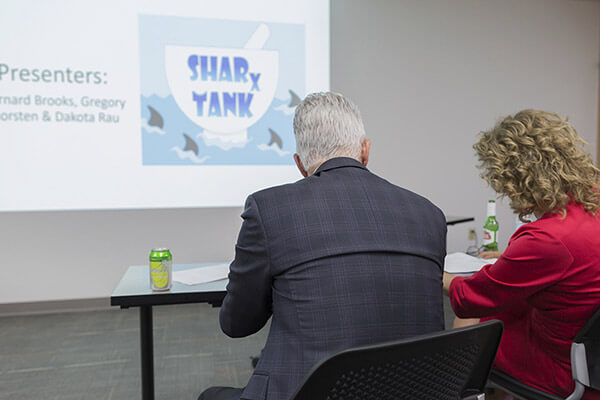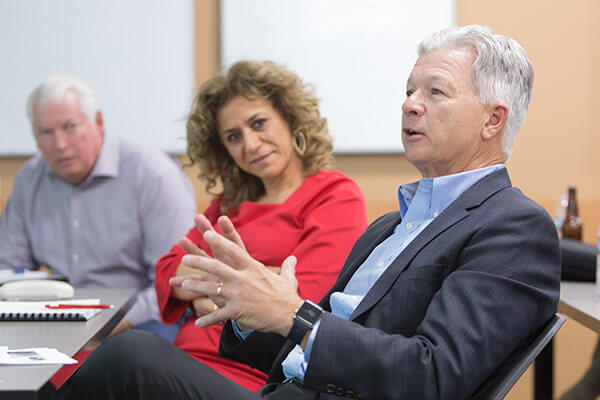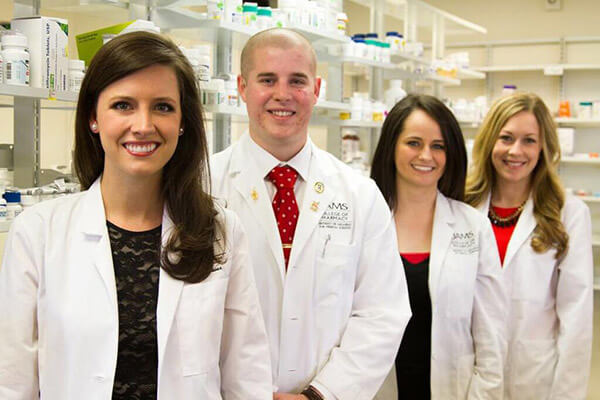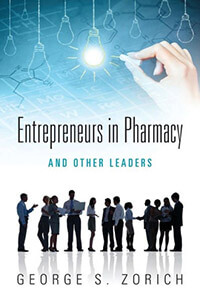Student pharmacists are developing business acumen, tapping into their creativity and demonstrating innovative thinking as they hone their entrepreneurial skills.
By Jane E. Rooney
The word entrepreneurism connotes leadership, innovation, creativity and taking initiative. It likely brings to mind new business ventures, perhaps tech start-up companies and risk takers in Silicon Valley. But entrepreneurship isn’t limited to one particular field or industry. Cultivating an entrepreneurial mindset is critical for healthcare professionals, not only in terms of product development but also when it comes to rethinking policies or reimagining organizational frameworks. In fact, the University of Maryland School of Pharmacy trademarked the term “pharmapreneurship” to describe the school’s commitment to supporting and best positioning faculty and students to achieve their career goals and address the nation’s healthcare challenges.
“A lot of pharmacists are thinking that entrepreneurship can help us innovate so our patients are safer and reach better outcomes,” said Dr. Joey Mattingly, assistant professor at the University of Maryland School of Pharmacy. “I believe pharmacists overall think it can help us advance our oath. The well-being of our patients is our primary concern. Entrepreneurship can enhance our goal of improving patient care.”
Helping student pharmacists develop entrepreneurial skills is consistent with AACP’s Strategic Priority #3: innovation in education and practice. It also ties in with current AACP President Dr. David D. Allen’s goal for his term to focus on leadership skill development. With the inclusion of the CAPE outcomes in Standards 2016 (Standard 4 addresses innovation and entrepreneurship), more schools of pharmacy are taking steps to incorporate entrepreneurship into the curriculum or on a co-curricular level. George Zorich, CEO of ZEDpharma and a University of Wisconsin–Madison School of Pharmacy alumnus, was inspired to write a book profiling pharmacy graduates who became entrepreneurs. Zorich said he wrote Entrepreneurs in Pharmacy and Other Leaders because “I didn’t think we did a very good job of telling the stories of all these pharmacists who took a risk to make an idea a reality. I interviewed 22 alumni and included stories of unconventional routes taken by someone with a pharmacy degree.” He also recalled a professor telling him he was wasting his degree by going to work in sales, which motivated him to write about nontraditional career paths. “Why are we limiting pharmacists to so few things? I asked people to share all the things you could do with a pharmacy degree and had them talk about how they got to be where they are.” (See sidebar, “Profiling Pharmacy Entrepreneurs.”)
These schools of pharmacy aren’t the only ones preparing their students to be entrepreneurs. Other institutions are entering teams in business competitions or even creating competitions of their own and drawing on alumni experiences to inspire students and teach them to be problem solvers and innovative thinkers.








